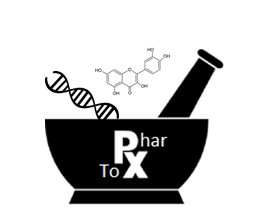DNA damage and repair Modulation of DNA damage and repair by Inflammation
Chronic inflammation is considered to be a risk factor for the development of epithelial cell derived malignancies. However the underlying processes have not yet been fully defined at the biochemical and molecular level. Within the lung, many inflammatory agents may play a part in accelerating carcinogenesis, including inhaled combustion derived particles, such as cigarette smoke. One of the most accepted explanations for these carcinogenic effects is the ability of combustion derived particles to transport chemical carcinogens, such as Polycyclic Aromatic Hydrocarbons (PAH), into the lungs. Another characteristic of these particles is however that they elicit an influx of polymorphonuclear neutrophils (PMN) into the airways upon inhalation, which is most evident in smokers who developed chronic obstructive pulmonary disease (COPD). The interesting thing is that smokers who have COPD appear to run an increased risk of developing lung cancer (up to 10 fold), suggesting a significant role of the ongoing neutrophil inflammation in this carcinogenic response. In the past, neutrophils have been implicated in (pulmonary) carcinogenicity by their genotoxic capacity through the release of mutagenic reactive oxygen species (ROS), which induce oxidative DNA damage, as well as by promoting the metabolic activation of environmental chemical carcinogens via the enzyme myeloperoxidase (MPO), resulting in premutagenic DNA adducts. This project focuses more specifically on the effect of neutrophils and myeloperoxidase on the nucleotide excision repair processes involved in the removal of such premutagenic DNA lesions (in vitro & in vivo), thereby contributing to a further understanding of the mechanisms underlying the association between inflammation and cancer development. We also showed that inflammatory cells could inhibit DNA repair capacities in co-cultured lung-epithelial cells. This effect was dependent on myeloperoxidase-catalysed production of hypochlorous acid and could further increase genetic instability.
We propose that these mechanisms provide an explanation for the association between chronic pulmonary inflammatory diseases (e.g. COPD) or inflammation in the liver (NASH) and cancer development.
Associated Staff
Frederik-Jan van Schooten
Professor, Head of the department
Prof. dr. Frederik-Jan van Schooten Department of Pharmacology and Toxicology, NUTRIM School of Nutrition and Translational Research in Metabolism, more ...
Roger Godschalk
Associate Professor
Dr. Roger Godschalk graduated in Biological Health Sciences in 1995 at the Maastricht University (The Netherlands). He specialised in genetic toxicolo more ...
Agnes Boots
Assistant Professor
Upon obtaining my PhD degree end 2006, I have 16 years of experience in life sciences research in which I have published over 70 papers with an H-inde more ...
Geja Hageman
Assistant Professor
Dr. Hageman studied agricultural sciences at Wageningen University. She graduated in 1985, having specialized in human nutrition and food science more ...
Daniëlle Pachen
Technician
Daniëlle Pachen studied at the technical school for chemistry in Heerlen, and she is specialised in analytical an instrumental techniques. From 1991 s more ...

